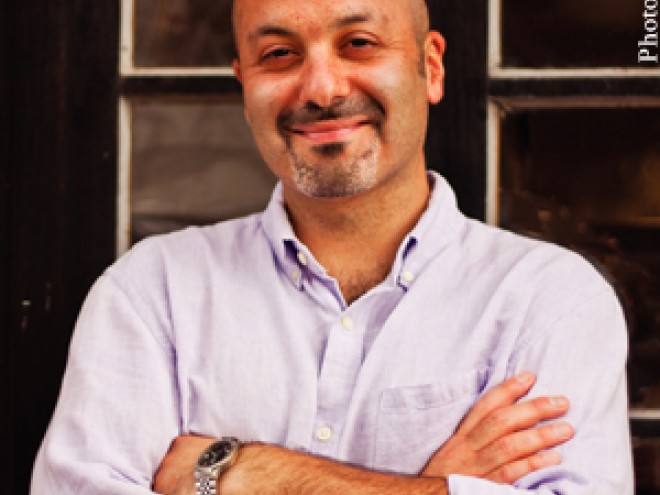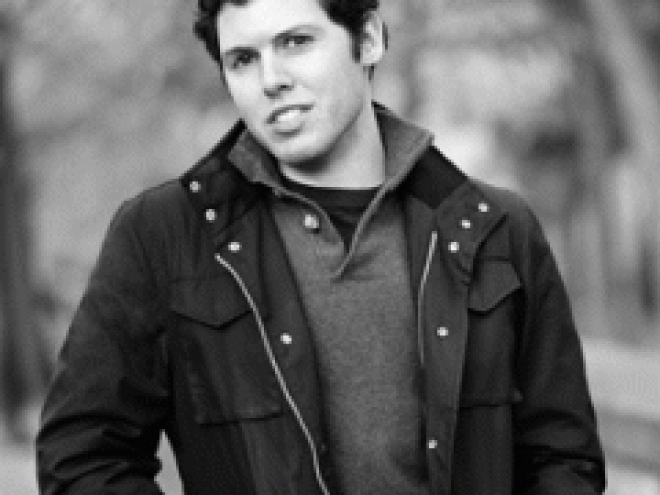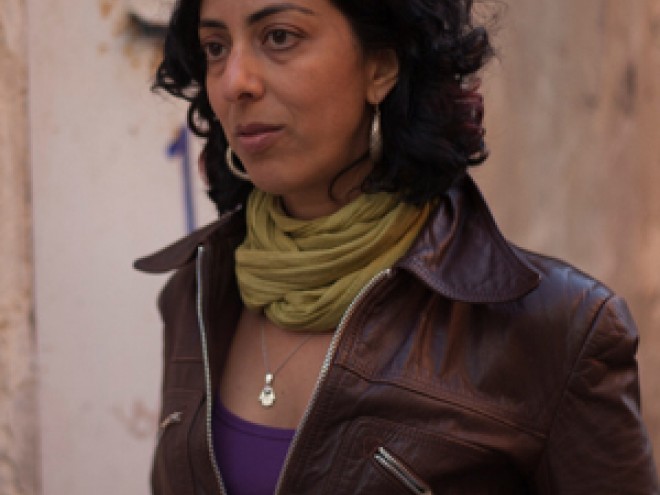Posted by Naomi Firestone-Teeter
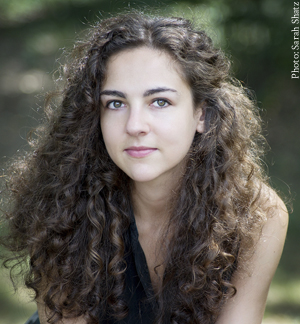 Yesterday we spent a little time getting to know Sami Rohr Prize finalist Kenneth Bonert, author of The Lion Seeker. Today we hear fromYelena Akhtiorskaya, whose debut novel Panic in a Suitcase was published this past summer by Penguin. Below, Yelena reveals her true feelings about books and numbers, the dark moment in her life when she decided to become a writer, and her penchant for great book covers and great book titles. If you’re in the New York-area and would like to see Yelena live, check out JBC’s May 19th Unpacking the Book event, “Soviet Roots, American Branches.”
Yesterday we spent a little time getting to know Sami Rohr Prize finalist Kenneth Bonert, author of The Lion Seeker. Today we hear fromYelena Akhtiorskaya, whose debut novel Panic in a Suitcase was published this past summer by Penguin. Below, Yelena reveals her true feelings about books and numbers, the dark moment in her life when she decided to become a writer, and her penchant for great book covers and great book titles. If you’re in the New York-area and would like to see Yelena live, check out JBC’s May 19th Unpacking the Book event, “Soviet Roots, American Branches.”
What are some of the most challenging things about writing fiction?
Making it consequential. The job is to find the weight, make it true. Basically, the hardest part about fiction is making it not. Aside from that, grammar. It can be, tricky.
What or who has been your inspiration for writing fiction?
Inspiration is a very positive word, too positive for me. Certain things are inspiring, sure, like Amelia Earhart, but inspiration feels like a dead end street. I’m much more motivated by the horrors.
Who is your intended audience?
Every human being on planet earth, with the exception of my loved ones. Of course the reality is pretty much exactly the inverse.
Are you working on anything new right now?
I’m working on a novel, which, if I ever finish, I’m going to put out under a pseudonym.
What are you reading now?
Gilbert Sorrentino’s Imaginative Qualities of Actual Things and Peter Pomerantsev’s Nothing is True and Everything is Possible. When I don’t choose a book based on its cover, it’s the title.
Top 5 favorite books
I have to gripe here. I’m sorry. It’s not just a problem with lists, but more general — any interaction between books and numbers upsets me.
When did you decide to be a writer? Where were you?
I was in drama class in junior high school, which I don’t think is a coincidence, since that was when life was the darkest and there wasn’t a glimmer of hope.
What is the mountaintop for you — how do you define success?
The mountaintop is a mountaintop. Seriously. I’ve been at sea level too long. The most banal version of success I can muster is being in a position to quit my obligations and go live on a mountain, or, okay, in a hotel on a mountain in Switzerland à la Nabokov. I’d just write and take walks. There are people who think I’d tire of this pretty quickly but I would be very determined to prove them wrong. I guess this just reflects financial success, but I think the notion of success should stay in the financial realm.
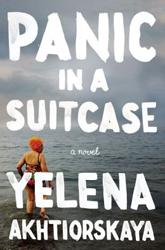 How do you write — what is your private modus operandi? What talismans, rituals, props do you use to assist you?
How do you write — what is your private modus operandi? What talismans, rituals, props do you use to assist you?
At first it’s pen and paper. Everything goes to shit when the computer gets involved. The computer is connected in a not very convenient way to my psyche. Everywhere outside of my open Word doc, the id runs amok. Inside my Word doc, the superego reigns supreme. If I wrote only on the computer, I’d go into word debt. I’d probably have to start deleting other people’s masterpieces.
What do you want readers to get out of your book?
A new perspective on absolutely anything.
Yelena Akhtiorskaya was born in Odessa in 1985 and raised in Brighton Beach, Brooklyn. She holds an MFA from Columbia University. She is the recipient of a Posen Fellowship in Fiction, and her writing has appeared in n+1, The New Republic, Triple Canopy, and elsewhere. She lives in New York City.
Related Content:
- Read JBC’s Emerging Voices interview with Yelena Akhtiorskaya here
- Read more interview with Sami Rohr Prize Finalists, past and present
- Russian/Soviet Jewry reading list
Originally from Lancaster, Pennsylvania, Naomi is the CEO of Jewish Book Council. She graduated from Emory University with degrees in English and Art History and, in addition, studied at University College London. Prior to her role as executive director and now CEO, Naomi served as the founding editor of the JBC website and blog and managing editor of Jewish Book World. In addition, she has overseen JBC’s digital initiatives, and also developed the JBC’s Visiting Scribe series and Unpacking the Book: Jewish Writers in Conversation.
